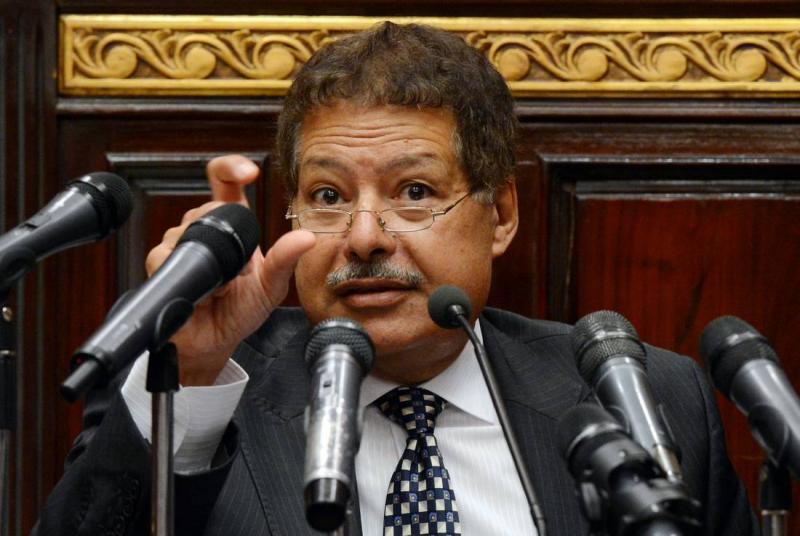Most of what I have written about and what I love to highlight is that he is the icon of my generation and a beacon of light in the shadow of scientific stagnation and intellectual retreat. He won the Nobel Prize as a gift to the Egyptian people from whom he emerged and the great homeland to which he belonged. I recalled that these days mark the eighth anniversary of his passing, as I revisit the lines of loyalty and words of mourning penned by a mutual friend, who is also an icon in the world of thought and poetry, Professor Farouk Gouida. I immediately remembered our last gathering: Zewail, Gouida, and I, at Fishawy Café in the heart of Cairo's Hussein neighborhood more than two decades ago, reminiscing as we discussed our shared past as children of the same governorate, even though we attended different schools.
This governorate, Al-Beheira, has gifted the nation notable figures like Mohammed Abduh from Shubrakhit, Tawfik al-Hakim from Damanhour, and Naguib Mahfouz from Rosetta. It is a province that has embraced Al-Azhar Al-Sharif throughout its long history and had close ties to the Ahmadia Mosque in Tanta before Damanhour became an independent religious institute. I return to Zewail, reflecting on his unique stature and lofty value, along with his attempts to reform education and elevate Egyptian scientific research to modern horizons. The echoes of his words from our long talks over the years still resonate in my ears, awakening within me a hope that will never die. Egypt, as a land of birth, will always flow with the breaths of knowledgeable individuals who carry the burdens of science and flashes of enlightenment.
It is Egypt, the land of Pharaonic, Greek, Roman, Islamic, and Christian legacies that is a confluence of civilizations and a gathering of cultures, holding the illuminating lamp in the darkness of the centuries. It is the great nation that has faced the fiercest challenges and the greatest attempts to stifle it out of malice, yet it has always remained steadfast, bolstered by caravans led by figures like Zewail during difficult times and complex situations. Ahmed Zewail, the prodigious genius and exceptional scholar, almost reached the threshold of a second Nobel Prize after the first one before he was snatched away by the hand of death, which grieved hearts and took away a luminous page from the routine of our repetitive lives.
He is Ahmed Zewail, heir to the Pharaonic legacy and the continuation of great scholars like Ibn Hayyan and Alhazen. On this occasion, I am reminded that in his later years, he invited me to attend a scholarly lecture he delivered in Berlin about Alhazen, the scientist of light, and his massive influence in the scientific and civilizational foundations of physics and chemistry in Islamic Arab civilization and its extension into European Christian civilization. Ahmed Zewail was characterized by limitless ambition that transcended the scientific field and cultural horizons to touch the windows of political reform. He could have become a historical inspiration for the Egyptian renaissance, similar to how Einstein represented a symbol for advocates of the Jewish question.
Thus, Zewail faced arrows hurled by supporters of the party of success adversaries, as the late Mufeed Fawzy referred to them, who mistakenly thought that Zewail came only to steal the jewel and flee with it, while Egypt itself is more rooted, deeper, and stronger than transient events and oppressive circumstances. When I was director of the Bibliotheca Alexandrina, I was surprised by his virtuous Syrian wife, Dima Al-Fahham, the daughter of the Syrian minister and linguist and former president of the Damascus Academy, who fulfilled her late husband’s wish by donating his library to be part of the Bibliotheca Alexandrina, which was precious to him as a graduate of Alexandria University. He always delighted in reviving its grand library by the Mediterranean Sea. The widow of the great scholar determined to bear the shipping costs of his library from America to Egypt, honoring the homeland that gave birth to this towering figure, placing Ahmed Zewail at the top of the shining list of our distinguished scholars.
I will always feel a sense of shortcoming whenever I receive a phone call from my dear sister, his sister, Mrs. Nana Zewail, as she speaks of her great brother and his significant role, always remembering his contemporaries and friends with gratitude, sometimes mixed with sorrow. The human soul is fickle and does not proceed at a steady pace, as the living sometimes deny the merits of the departed and the value of those who sacrificed their most precious possession—their knowledge and thought—for their nation. Zewail will remain in my personal conscience as a lasting legacy and a shining light that will never dim. I still remember his patriotic feelings during the January 25 Revolution and afterward, how his heartbeat rose and fell with the political thermometer during those turbulent years in our contemporary history.
Rest well, dear friend and companion, in life and in death. Our pride in you as a departed soul is no less than that of you being present with us. You have woven yourself into minds and hearts with your humility and your constant desire to elevate the nation to the heights of science and knowledge. Egypt and its scientific community, along with its people both at home and abroad, will never forget you as a figure that generations clung to, and youth competed to attend your intellectual and scientific meetings at the Egyptian Opera House and beyond. As for myself, Farouk Gouida, and thousands of others, we miss your smiling presence and the renewed spirit of hope that you infused into the corners of our homeland... Your memory will continue to inspire knowledge akin to that of Ibn Hayyan, the visions of Alhazen, and the glories of your Pharaonic ancestors!




